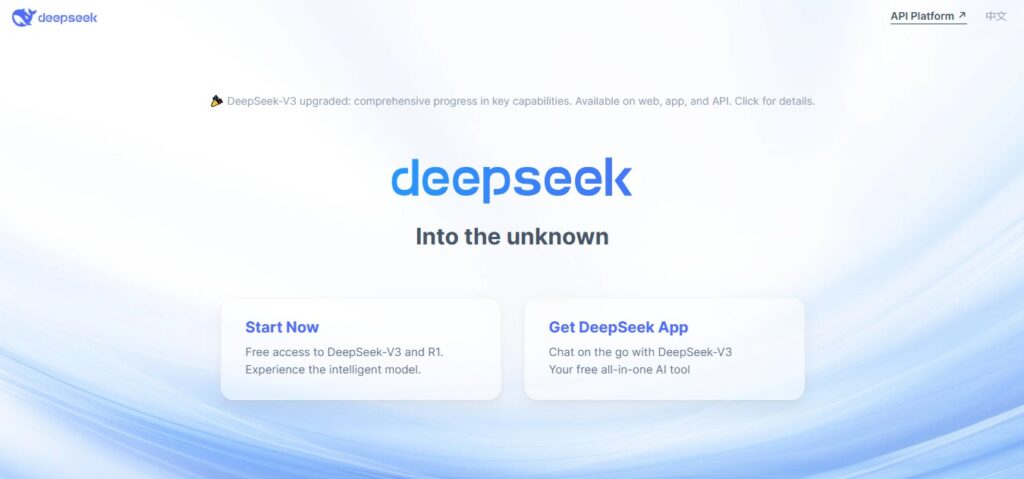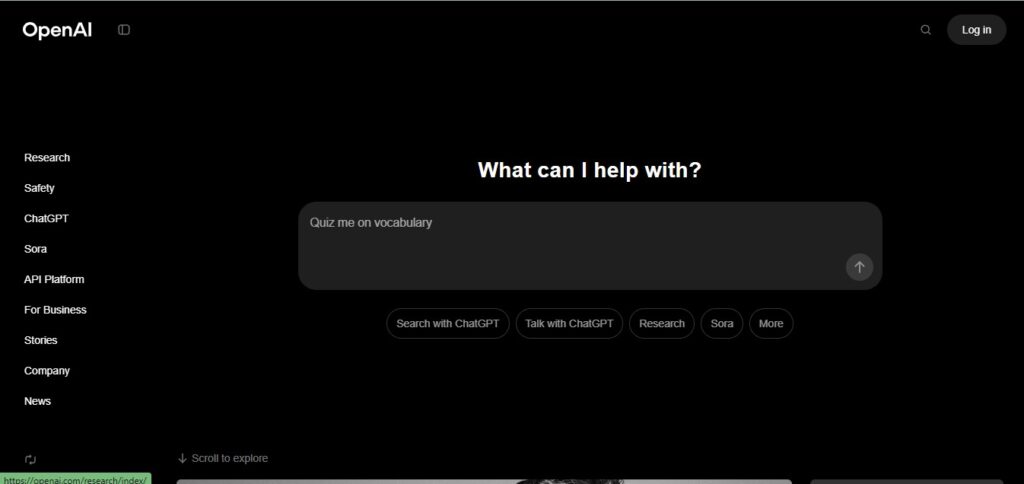The artificial intelligence sector has reached unprecedented levels of competition in 2025, as numerous advanced language models battle for market leadership and technological superiority. This intense rivalry stems from rapid innovations in neural network architectures, with tech giants and startups alike pushing the boundaries of what AI systems can achieve.
The proliferation of sophisticated LLMs has created a dynamic environment where each new model release attempts to outpace competitors through enhanced capabilities, specialized applications, and improved efficiency.
This fierce competition benefits end-users through better performance, lower costs, and more diverse AI solutions tailored to specific needs. The current landscape features an arms race of computational power, training methodologies, and real-world applicability, making 2025 a pivotal year for AI advancements and adoption across industries.
Two of the biggest names in this space are DeepSeek and ChatGPT, each offering unique strengths. But is DeepSeek truly better than ChatGPT? The answer depends on your needs—whether you prioritize cost efficiency, technical performance, ease of use, or specialized applications.
In this in-depth comparison, we’ll explore:
- Performance in reasoning, coding, and content creation
- Pricing and accessibility
- Strengths and weaknesses for different users
- Real-world use cases and limitations
By the end, you’ll have a clear understanding of which AI model suits your requirements best.
1. Performance & Accuracy: Which AI is Smarter?
DeepSeek’s Strengths: Logical Reasoning & Technical Tasks

DeepSeek demonstrates exceptional proficiency in systematic analysis and logical reasoning, with standout performance in technical domains such as science, engineering, programming, and quantitative disciplines. Its architecture is specifically optimized for breaking down complex problems into structured solutions, making it particularly valuable for:
- Algorithmic problem-solving (competitive programming, LeetCode-style challenges)
- Mathematical proofs and computations (from calculus to statistical modeling)
- Engineering simulations and data science workflows
Unlike conversational AIs that prioritize fluency, DeepSeek emphasizes precision and methodological correctness, often providing step-by-step derivations critical for technical users. This makes it a preferred tool for developers, researchers, and analysts who require reproducible, audit-friendly reasoning rather than generalized responses.
For example, when tasked with:
- Debugging a Python script with nested loops
- Deriving optimized SQL queries for large datasets
- Solving applied physics problems
DeepSeek consistently delivers actionable, logically sound outputs with clear explanatory frameworks—a distinction that positions it ahead of many general-purpose models in technical contexts.
- Coding & Debugging: DeepSeek outperforms ChatGPT in algorithmic challenges and complex debugging, making it ideal for developers .
-Precision in Quantitative Analysis: Rigorous performance evaluations reveal DeepSeek maintains a 90% success rate on complex mathematical challenges, outperforming GPT-4o’s 83% accuracy margin in comparable testing environments. This superior computational proficiency proves particularly valuable for:
- Advanced calculus and linear algebra operations
- Statistical modeling and probability calculations
- Quantitative finance applications
- Engineering simulations requiring exact solutions
The model’s architecture demonstrates particular strength in maintaining accuracy across progressively difficult problem sets, from graduate-level mathematics to real-world engineering computations. This technical advantage stems from DeepSeek’s specialized training on structured problem-solving datasets and its ability to preserve numerical precision throughout multi-step analytical processes.
- Chain-of-Thought Reasoning: Unlike ChatGPT, DeepSeek shows its step-by-step reasoning, which is invaluable for technical users .
ChatGPT’s Edge: Creativity & Multimodal Capabilities

While DeepSeek is optimized for logic, ChatGPT remains the king of versatility:
- Natural Conversations: ChatGPT’s responses feel more human-like and engaging for general discussions .
- Multimodal Features: Unlike DeepSeek (which is text-only), ChatGPT supports image generation (DALL·E), voice interactions, and video creation (Sora) .
- Content Creation: For blog writing, marketing copy, and storytelling, ChatGPT often produces more fluid and creative outputs .
Verdict:
- For technical tasks (coding, math, research) → DeepSeek wins
- For creative writing & multimedia → ChatGPT is superior.
Conduct Industry Analysis in Seconds – For Free!
Discover how QuantexFlow can help you quickly analyze any industry with powerful AI-driven insights. Perfect for entrepreneurs, investors, and business analysts.
Try It Now – FreeNo credit card required. Get instant access to industry insights.
2. Cost & Accessibility: Is DeepSeek More Affordable?
DeepSeek’s Open-Source Advantage
One of DeepSeek’s biggest selling points is its free-to-use model with no paywall for core features . Additionally:
- API costs are significantly lower than ChatGPT’s ($0.14 per million input tokens vs. OpenAI’s premium pricing) .
- Self-hosting is possible, making it ideal for businesses needing data privacy .
ChatGPT’s Freemium Model
While ChatGPT offers a free tier, its best features require subscriptions:
- GPT-4o access starts at $20/month (Plus plan) .
- Enterprise plans ($200+/month) offer higher limits and priority access .
Verdict:
- Budget-conscious users → DeepSeek is the clear winner
- Those needing premium AI features → ChatGPT may justify the cost
3. Use Cases: Who Should Choose Which AI?
Best For DeepSeek:
- Developers & Engineers – Superior code generation and debugging
- Researchers & Data Analysts – Strong mathematical and logical reasoning
- Businesses Needing Cost-Efficiency – No hidden fees, open-source flexibility
Best For ChatGPT:
- Content Creators & Marketers – Better storytelling and SEO-optimized writing
- Casual Users – More intuitive, conversational interface
- Multimedia Projects – Image, voice, and video generation
4. Limitations & Drawbacks
DeepSeek’s Weaknesses
- No image/voice support (text-only)
- Less polished UX (requires technical setup for API/local use)
- Multilingual support lags behind ChatGPT
ChatGPT’s Downsides
- Expensive for high-volume usage
- Less transparent reasoning (black-box responses)
- Closed-source model limits customization
Final Verdict: Which AI Should You Use?
Choose DeepSeek If You…
- Need highly accurate technical & coding assistance
- Prefer open-source, budget-friendly AI
- Want transparent, step-by-step reasoning
Choose ChatGPT If You…
- Require multimodal AI (images, voice, video)
- Value natural, conversational responses
- Can afford premium subscriptions for advanced features
Conclusion: There’s No Clear “Winner”
Both models excel in different areas. DeepSeek is the specialist—ideal for logic-heavy tasks. ChatGPT is the generalist—better for creativity and everyday use. Your choice depends entirely on your specific needs and budget.
Want to Try Them Yourself?
- DeepSeek:
- ChatGPT:
DeepSeek vs ChatGPT: Key Questions
Tap to reveal 2025 comparison insights
Which AI has better performance in 2025?
Longer context memory (128k tokens)
Superior technical writing
Free access to advanced features
More conversational flow
Better multilingual support
Tighter app integrations
How do their pricing models compare?
DeepSeek: Completely free (as of 2025)
ChatGPT Free: GPT-3.5 with limitations
ChatGPT Pro: $20/month for GPT-4 access
Which is better for research and data analysis?
- DeepSeek handles complex queries with more precision
- ChatGPT explains concepts in simpler terms
- Both can process uploaded files (PDFs, Excel)
- DeepSeek maintains context across longer documents
How often are these models updated?
DeepSeek: Major updates every 4-6 months
ChatGPT: Continuous small improvements
Last Major Update: DeepSeek-V3 (March 2025) vs GPT-4.5 (Jan 2025)


